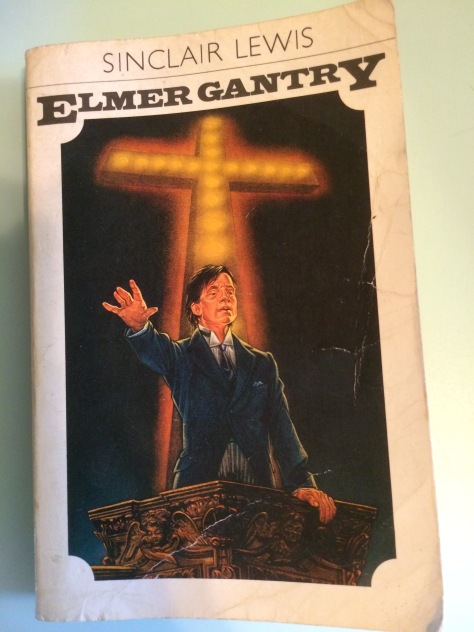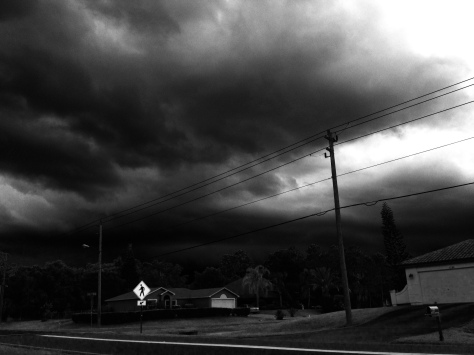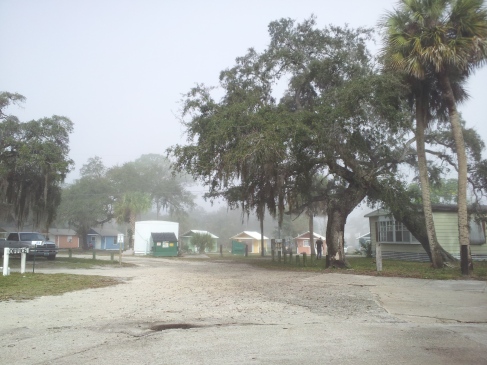Elmer Gantry, by Sinclair Lewis, was published in 1927. This statement is difficult to grasp, considering how modern it feels. Not a great deal has changed in the way of humanity since its publication. This book, which is nearing a century old (90 years, to be exact), reflects current society so well that it sounds, in every way, as though it could have just been released. In fact, apart from references to technology and mentions of the year, there is nothing to mark its setting. Though it came out in 1927, it takes place a little earlier. The book opens in 1902, the title character is a college student at this point and we follow him throughout his life into his 40s. He is drunk in that opening scene, which is a very fitting start for him. Elmer Gantry is not an honest man. In fact, he is the furthest thing from an honest man that one could be. He uses various forms of Christian ministry to further himself: to gain followers, prestige, and money. His only wish is to have a huge audience hanging on his every word.

What impressed me most about this book, as I have already said, is how modern it feels. By this, I do not mean merely the style of the writing, but rather how it reflects current societal views. The believability of the characters is also noteworthy of mention. Elmer gets involved with many people during his journey, some likeable and others deplorable. Regardless as to the quality of any given character’s merits, they are all believable as real human beings. They all have goals and aspirations, they are all driven by something and have their own emotions. This book is completely immersive in not just culture, but human experience. It is a classic that everyone should read at least once in their life.
Jim Lefferts was my favorite character in the early stages of the novel. He was Elmer’s level-headed college roommate. Jim was an atheist. This fact is very important as they attended a Christian college. Jim was Elmer’s only atheist friend. At that point in his life, Elmer took no interest in religion, so he naturally did not have any other friends.
Frank Shallard was another interesting character. I did not care for him in the beginning of the novel, but as he came back into the story at later points, he became one of my favorite characters! In many ways, I would say that he was the real hero of the story. I will not say how though. This review will be spoiler free to the best of my abilities.
The book takes place in Winnemac state. No, your geography is not that bad, dear reader. Well, it may be, I cannot really say, given the fact that I do not know you. Winnemac state is an entirely fictional location invented by the author and used in many of his novels. It is situated in the Mid-West. I have never been to the Mid-West, so I cannot say that I know of the culture in that area, but I saw many parallels between my personal background and what is portrayed in this novel. There is the same uneducated dialect, backwards ways, and obsession with religion. The religious aspect stuck out most. Many people’s lives revolved around the church. In the case of my upbringing, not everyone went to Church, but everyone was religious in some minor way at the least. This novel represents a perfect commentary on the state of society, especially life in small town, USA. People know one another and they know one another’s business, there is no real privacy. People are flawed, but have a beauty of their own. All of this, all of life as reflected in a fictional state in the 20th century is well and alive in 21st century small towns.
I grew up in the South around the Tennessee and Kentucky state line, moving around a lot as a kid, occasionally from one state to the other. I now live in Florida. While Florida is geographically southern in its placement in the country, it is not culturally what I would call “Southern.” I always lived in small towns as a kid. In my younger years, I lived in the town square and in my later childhood, I usually lived out in the country. When I was 13, my family befriended a travelling missionary. This missionary was nothing like Elmer: he was sincere. He was crazy, but he was sincere in his beliefs! Religion was the entire center of his being. He got my family involved with a small country church, not much unlike Elmer’s first church. It was a peaceful place, but this man was still poisoned with hatred for people of other religions and could not even tolerate opposing opinions. He had his strong points though, he was trustworthy and willing to help others. There was no character in Elmer Gantry that directly paralleled him, but he is a part of what it is like to live in small religious areas.
I really appreciated the debates on issues with the Church and with religion in general. It may be difficult for people not from the Bible belt to really understand the culture, but I am sure that through the undoubted sympathy the characters must inspire toward themselves, readers from all over the world should be able to immerse themselves in the culture and time. For roughly 500 pages, we are all 20th century Mid-Westerners.
Buy the book on Amazon by clicking the image below!





